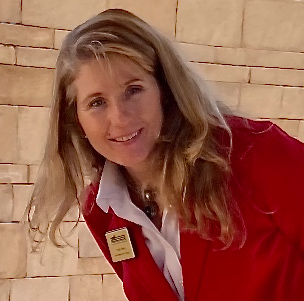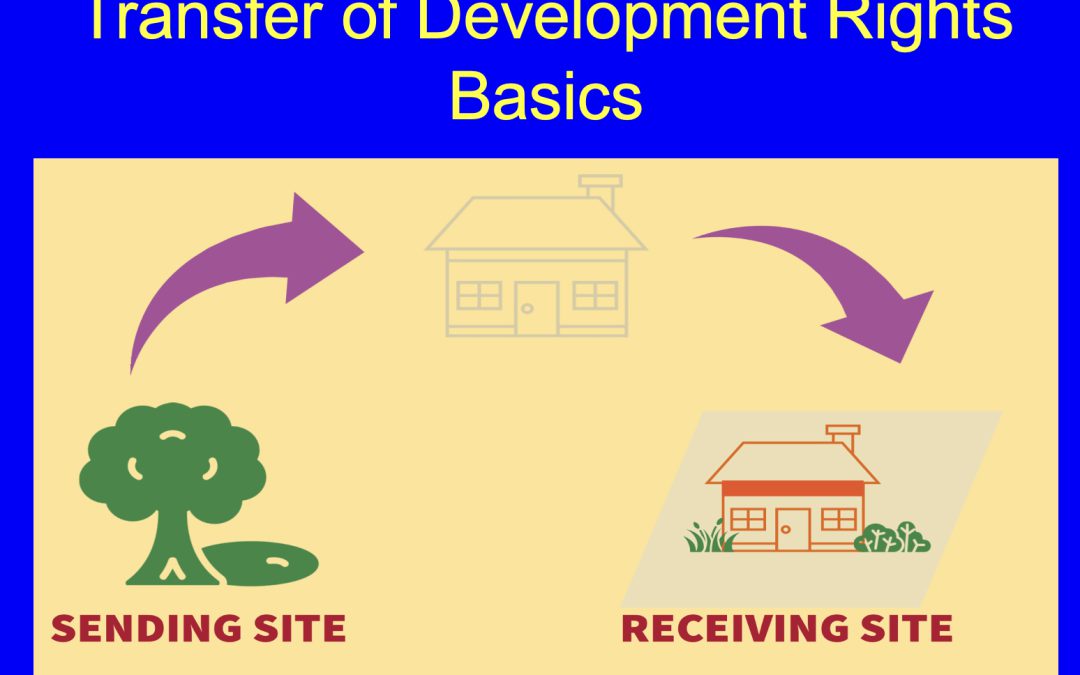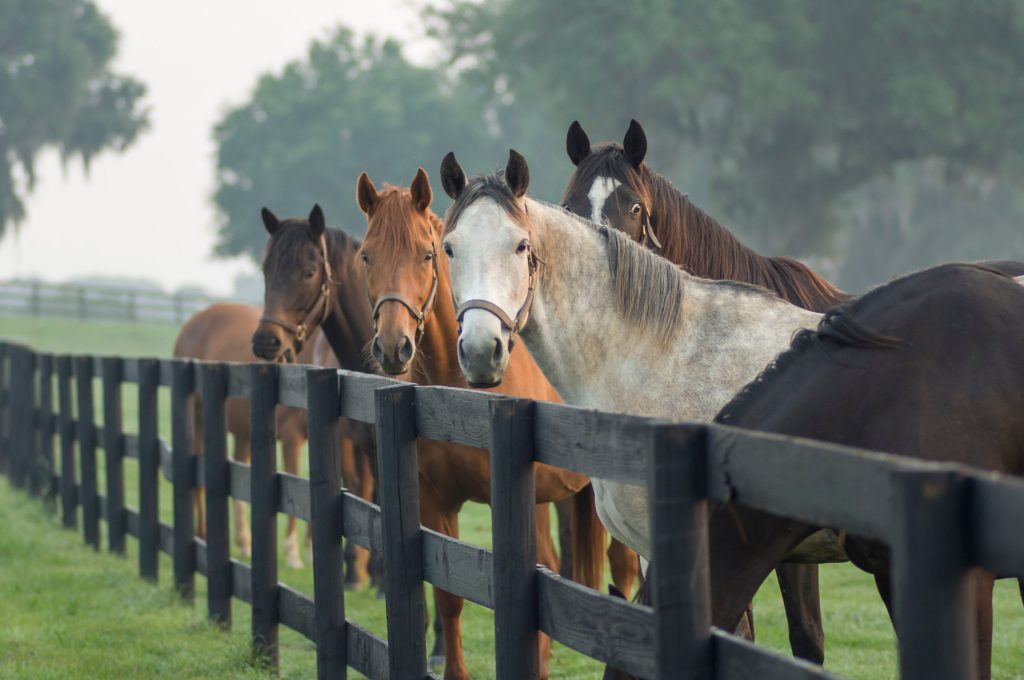The purpose of the Transfer of Development Rights (TDR) program is to help protect farmland and natural resources in Marion County by providing financial incentives to landowners and program participants. Sending Areas are the areas where communities want less (or no) development and the areas appropriate for growth are called Receiving Areas.
One of the ways to help protect farms in the Farmland Preservation Area is with Marion County’s Transfer of Development Rights Program.
At the July 18 meeting, Marion County Commissioners helped to further protect the Farmland Preservation Area (FPA) by approving the use of 72 Transfer of Development Right (TDR) credits from a farm in the FPA that had been conserved with the TDR program over 15 years ago to a parcel of land inside the Urban Growth Boundary.
The 72 development credits were purchased by Sunbelt Land Fund I-Ocala South, LLC and will be used to increase the density on a 36-acre parcel of land by 72 units. The land already has the zoning to build a 288 multi-family apartment, but with the additional 72 TDR credits, the number of units will increase to 360. The property to be developed is located on the east side of SW 60th Avenue at the intersection of SW 52nd Street and it has a Future Land Use of High Density.
“These 72 TDR credits were created in 2008 by Walter and Wendy Boring when they placed a conservation easement on 119 acres of their property in the Farmland Preservation Area. Horse Farms Forever thanks the Boring family for protecting their land for future generations!” said Busy Shires, Director of Conservation Strategies, Horse Farms Forever at the July 18 Commission meeting.
Marion County’s TDR program was created in 2004 and it had some early success by preserving over 3,200 acres of land, but it has not been utilized to its full extent for over 15 years.
However, over the past year, Horse Farms Forever has been working with stakeholders to review the TDR program to see if there are ways to make it more relevant and sustainable for landowners and also for developers. In April, HFF held a Roundtable led by Rick Pruetz, a nationally known expert on TDRs about Marion County’s TDR program with 25 community stakeholders to provide feedback about the TDR program.
With the tremendous growth pressures and the need for additional housing, this is the right time to fully utilize the TDR program to not only help preserve the Farmland Preservation Area but to also direct growth to appropriate areas within the Urban Growth Boundary.
In Transfer of Development Rights (TDR) jargon, the areas where communities want less (or no) development are called sending areas. Sending areas can include environmentally sensitive places, farmland, historic landmarks, open space, or any other resources that a community wants to preserve. The areas appropriate for growth are called receiving areas. Receiving areas are suitable for development, typically because they are close to jobs, shopping, schools, infrastructure, public services, and other urban amenities.

What About Zoning?
The Zoning regulations are found in the Land Development Code, which is a separate document with specific guidelines to implement the Goals, Objectives, and Policies of the Comprehensive Plan.
Zoning regulates development through land use classifications and specifies the areas in which residential, industrial, recreational or commercial activities may take place. The Land Development Code was adopted through a series of ordinances by the County Commission, which means that the regulations cannot be changed or waived, except by a further vote of the County Commission.
Contact the County about the EAR:
For any additional questions regarding the EAR process, please email Planning@MarionFL.org with your subject line including 'EAR' or call us at 352-438-2675 & ask for a planner.
The workshops will be livestreamed. Check the County’s agenda webpage for the link: https://marionfl.legistar.com/Calendar.aspx


